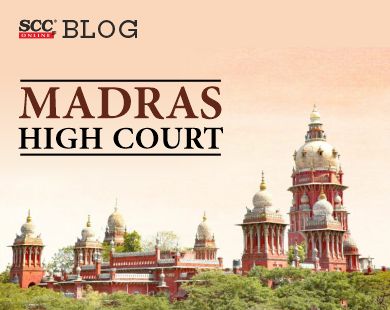Madras High Court: In a writ petition filed for directing the Regional Passport Officer to issue passport to the petitioner, G.R. Swaminathan, J. permitted the petitioner to submit an application under Section 20 of the Passports Act, 1967 and directed the Central Government to consider her application and pass order as expeditiously as possible.
In the case at hand, the petitioner’s parents are Srilankan citizens. They escaped to India to avoid persecution in the country of their birth. The petitioner’s parents were housed in the refugee camp in Tamil Nadu. The Petitioner was born in India. She now wants to go abroad for employment, but her efforts to obtain an Indian passport have been in vain.
The Central Government points out that since the petitioner was born after the cut-off date i.e., on 01-07-1987, she cannot claim Indian citizenship as a matter of right. Further, it was submitted that, if a child is born in India to an illegal immigrant, after the cut-off date, then he/she is also not eligible for citizenship. However, the petitioner can apply for citizenship by naturalisation and it would be considered on merits by the competent authority.
The Court granted liberty to the petitioner to apply for Indian citizenship by naturalisation under Section 6 of the Citizenship Act. But, said that it is a long journey, and this may not afford immediate relief to her.
The Court referred to Section 20 of the Passports Act, 1967 and observed that this provision empowers the Central Government to issue passports or travel documents even to a non-citizen. It also said that any power is coupled with duty. Parliament in its supreme wisdom chose to incorporate such a provision to deal with situations such as the one at hand. The Central Government must believe it is necessary so to do in the public interest.
The Court said that petitioner was born and brought up in India. Her parents have lost their roots in the country of their origin. Referring to Section 5 (2) of the Citizenship Act of Srilanka, the Court said that the petitioner is not in a position to go to Srilanka and take a Srilankan passport, as the materials on record does not indicate that the petitioner is a Srilankan citizen. Prima facie, it appears that her birth was not registered and therefore, she is not a Srilankan citizen neither an Indian citizen. She is a stateless person.
The Court said that right to earn one’s livelihood and right to travel abroad are enshrined in Article 21 of the Constitution of India which applies to all persons, citizens and non-citizens alike. Thus, granting passport to the petitioner under Section 20 of the Passports Act, 1967 is not going to prejudice the interest of the country and would serve the public interest, as attending to the needs of the refugees, asylum seekers and stateless persons is certainly a matter of public interest.
Further, the Court referred to two International Conventions dealing with statelessness:
- The 1954 Convention on Status of Stateless Persons, that is designed to ensure that stateless people enjoy a minimum set of human rights. It also guarantees stateless people a right to identity, travel documents and administrative assistance.
-
The 1961 Convention on Reduction of Statelessness, that aims to prevent statelessness and reduce it over time. Further, convention establishes that children are to acquire the nationality of the country in which they are born if they do not acquire any other nationality.
It said that even though India is not a signatory to the said conventions. However, one can seek guidance from them.
Thus, the Court permitted the petitioner to submit an application under Section 20 of the Passports Act.
[Harina v Regional Passport Officer, W.P(MD)No.27893 of 2022, decided on 30-01-2023]
Order by: Justice G.R. Swaminathan
Advocates who appeared in this case :
For Petitioner: Advocate B. Santhanam Rajesh Kumar;
For Respondents: Senior Panel Counsel H. Lakshmi Shankar;
Additional Government Pleader B. Saravanan.
*Apoorva Goel, Editorial Assistant has reported this brief.








When this process start, we are all keep asking the details of how to get Indian passport, but we can’t get any information regarding this, we know it’s very hard, but we need a little relaxation. at least if we get the passport we can fulfill our dream in abroad, because here we are not having any job opportunities. help us….